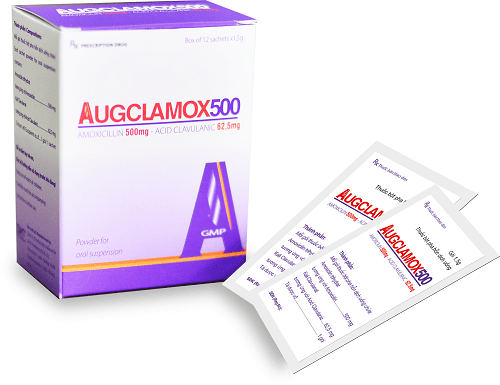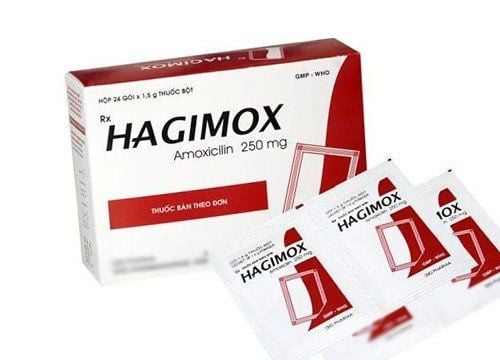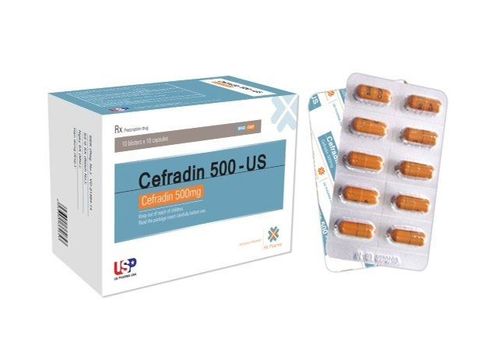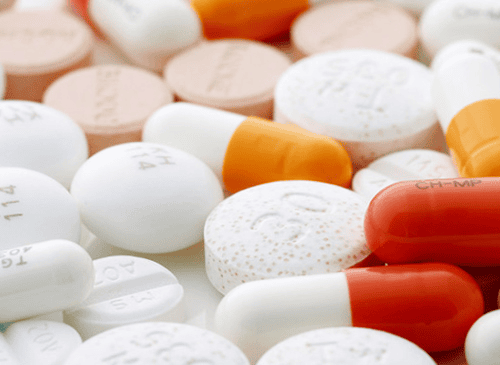This is an automatically translated article.
Bicebid 100 is a drug commonly used in the treatment of a number of bacterial infections such as urinary tract infections, sore throats, tonsillitis, bronchitis, pneumonia,... So Bicebid 100 has an effect. What and how to use this medicine?
1. What does Bicebid 100 do?
Bicebid 100 has the main ingredient is Cefixim 100mg, this is an antibiotic used in the treatment of a number of bacterial infections.
Bicebid 100 is indicated in the following cases:
Uncomplicated urinary tract infections caused by susceptible bacteria. Gonorrhea has no complications. Some cases of pyelonephritis and other urinary tract infections are complicated by Enterobacteriaceae, but the treatment results are worse than in uncomplicated cases. Pharyngitis , tonsillitis and otitis media . Acute and chronic bronchitis. Community-acquired pneumonia is mild and moderate. Typhoid Dysentery. Bicebid 100 is contraindicated in the following cases:
People with a history of hypersensitivity to Cephalosporin antibiotics. Infants under 6 months old
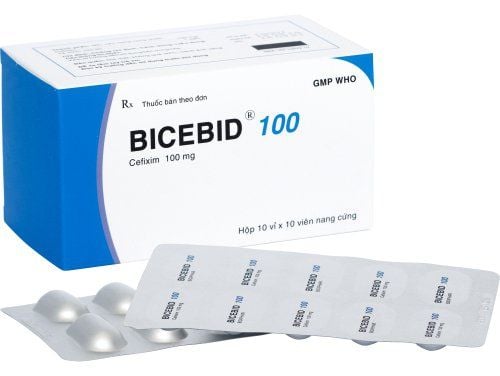
Thuốc Bicebid 100 là một kháng sinh điều trị nhiễm khuẩn
2. Dosage and how to use Bicebid 100
Adults and children > 12 years old use 400mg/day.
In case of gonococcal urinary tract infection, a single dose of 400mg or 200mg twice a day can be taken.
For children 6 months - 12 years old use dose 8mg/kg x 1 time/day or 4mg/kg x 2 times/day.
For patients with renal failure, it is necessary to adjust the dose of Bicebid 100 accordingly:
The duration of treatment with Bicebid 100 is usually from 5 to 10 days.
When using an overdose of Bicebid 100 you may have symptoms of convulsions. Since there is no specific treatment for overdose, treatment is mainly symptomatic.
When there are symptoms of overdose, you need to stop the drug immediately and notify the doctor for timely treatment with measures such as gastric lavage, anticonvulsant drugs if indicated. Bicebid 100 is not removed by hemodialysis, so hemodialysis or peritoneal dialysis is not performed.
Drug interactions Bicebid 100 with other drugs:
Probenecid increases the peak concentration and AUC of Bicebid 100, reduces renal clearance and volume of distribution of the drug. Co-administration of Bicebid 100 with anticoagulants such as warfarin increases prothrombin time, with or with bleeding. Co-administration of Bicebid 100 with carbamazepine increases the plasma concentration of carbamazepine. Co-administration of Bicebid 100 with nifedipine increases the bioavailability of the drug as demonstrated by an increase in peak concentration and AUC.
3. Side effects of Bicebid 100
Side effects you may encounter when using Bicebid 100 include:
Common side effects include:
Digestive disorders: This condition usually occurs within the first 1-2 days of treatment and Symptomatic response to medications is encountered, rarely requiring discontinuation. Headache Dizziness Restlessness Insomnia Fatigue Erythema Urticaria Drug fever. Uncommon side effects include:
Severe diarrhea due to Clostridium difficile Pseudomembranous colitis Anaphylaxis Angioedema Stevens - Johnson syndrome Erythema multiforme Transient thrombocytopenia, leukopenia, and eosinophilia. Decreased hemoglobin and hematocrit levels Hepatitis transiently increases AST, ALT, alkaline phosphatase, bilirubin, LDH and jaundice. Acute renal failure, transient elevation of plasma creatinine and plasma non-protein nitrogen. Vaginal Candida infection. Rare side effects include:
Convulsions Prolonged prothrombin time. You need to notify your doctor immediately when you encounter side effects during the use of Bicebid 100.

Thuốc Bicebid 100 có thể gây ra một số tác dụng phụ ngoài ý muốn
4. Pay attention to precautions when using Bicebid 100
People with a history of allergy to penicillins and cephalosporins due to cross-sensitivity occurring between beta-lactam antibiotics. People with a history of gastrointestinal disease and colitis, especially with prolonged use, as Bicebid 100 may be at risk of overgrowth of resistant bacteria. People with kidney disease need to reduce the dose and frequency of taking Bicebid 100. There are no data on the safety and efficacy of Bicebid 100 in children under 6 years of age. For the elderly, dose adjustment of Bicebid 100 should only be made in the presence of impaired renal function (creatinine clearance < 60 ml/min). Pregnant women: Bicebid 100 should only be used when absolutely necessary. Lactation: Bicebid 100 should be used with caution, breast-feeding may be temporarily discontinued during treatment. Knowing the information about drug use will bring the best treatment results to the patient and minimize the unwanted side effects.
Please dial HOTLINE for more information or register for an appointment HERE. Download MyVinmec app to make appointments faster and to manage your bookings easily.




